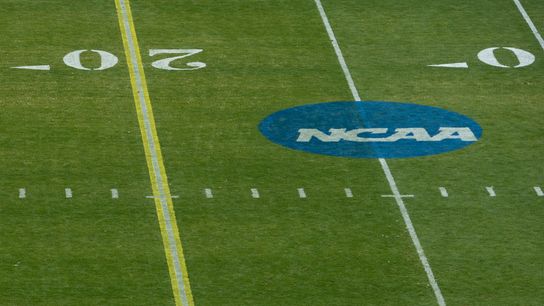The state of California is on its way to passing a landmark bill that would allow its college athletes to market their name, image and likeness, as SB 206 is now just one signature from Gov. Gavin Newsom away from becoming law, effective Jan. 1, 2023. That push has inspired a similar effort from South Carolina and, now, New York.
New York state senator Kevin S. Parker, a Democrat, has introduced S6722, which would grant the Empire State's college athletes the right to market their name, image and likeness without losing their scholarship. The bill would also grant the right for athletes to hire an agent to represent their interests in the marketplace.
Reads the bill's justification (the entire text can be read here):
Students shouldn't have to struggle if their skills are being profited from by the colleges and universities they attend. The issuance of a scholarship should not be the basis to deny athletes fair pay to play.
The bill was just introduced on Monday and now sits in committee. It still has to pass through committee, be scheduled for a vote, pass through New York's Senate and Assembly and then receive a signature from Gov. Andrew Cuomo to become law.
So, it's still a ways away from becoming law, but California's bill passed through its legislature with flying colors.
This latest effort is now just another prong in what has become a multi-pronged war against the NCAA's business model. In addition to California, New York and South Carolina, there are separate, bipartisan pushes in Washington to upend the amateurism model.
The NCAA has vaguely threatened that its current rule book would give the organization no choice but to boot the entire state of California from its membership, and one would assume they'd send the same harshly worded letter to New York's lawmakers should S6722 reach that point.
But California has nearly 40 million citizens, and New York has nearly 20 million. Together they are home to 59.1 million people, more than 18 percent of the entire United States population.
The NCAA has business interests of its own -- television contracts to renew, sponsors to placate -- and it's safe to say the organization couldn't boot the nation's first- and third-most popular states from its membership without hearing something from CBS, Coca-Cola and the roster of other corporations on whom the NCAA depends for funding.
And here's the real sobering thought for all the NCAA's amateurism hardliners: it's clear by now that California's SB206 wasn't the climax of the assault on the NCAA's business model, it's just the beginning.
